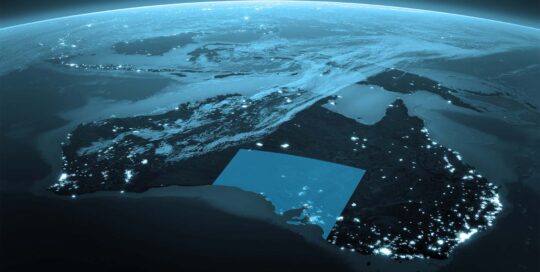Dr Catherine Grace is the newest member to the team at the South Australian Space Industry Centre, joining us as the Director – Space.
With an impressive background spanning the fields of medicine, research and academia, we are delighted for her to be bringing her knowledge and passion to SASIC in order to help the sector continue to grow.
Read on to find out more about her incredible career journey and how she ended up working with the space industry!
Tell us about your new role at the South Australia Space Industry Centre.
I am absolutely delighted to take-up the newly created role of Associate Director – Space for SASIC.
South Australia is continuing to develop a vibrant and sustainable space ecosystem, while already being home to some significant space capabilities. SASIC is leading the state’s space industry development efforts, cultivating South Australia as a centre-of-gravity for Australia’s expanding space activities. In my role, I get to play a key part of supporting a thriving and enduring South Australian space sector.
I view this opportunity with SASIC as an avenue to collaborate with individuals and organisations committed to meeting the opportunities facing Australia’s space sector today and tomorrow, while simultaneously ensuring the state continues to drive the growth of Australia’s innovation ecosystem. My diversity of thought and of background will allow me to complement the national space strategy and support South Australia to continue to be an innovative, pioneering, and desirable place to live, learn and grow.
Already in the first week, it’s been exactly as exciting and fulfilling as you can imagine.
Tell us about your career journey. How did you end up in this role?
I wouldn’t say that my journey into the space sector has been straightforward – but that’s one of the things that makes this sector so exciting and inclusive. Space is able to capture the minds and imaginations of all of us, and incredible opportunity abounds for people with all kinds of different backgrounds.
I’ve always been a curious person; when it would snow, I would ask my mom ‘why is it snowing?’, ‘but where does it come from?’ and ‘how does the weather work?’ and so on. I am sure that for her, it was annoying, but this need to understand the world remains an inherent part of who I am. That’s how I’ve always viewed education – as a gateway not only to understand but to provide opportunities that I could not have gotten anywhere else.
Coming from a low socio-economic background, I was able to attend university thanks to an academic scholarship and that was the beginning of the path which led to where I am today. From my undergraduate studies in archaeological science and human biology, I went on to study medicine at the Medical University of Warsaw. During my time in clinical practice, I was fortunate enough to participate in research, translation and science-communication. Working on world-leading studies meant that I was exposed to a different platform for opportunity. The medical field intersects with disruptive technologies and my natural curiosity led me to use my translatable skills to pursue these intersections. The cutting-edge space innovation ecosystem, and South Australia’s world-class universities provided me with the opportunity to contribute to the space sector.
Why do you love about your career in the space industry?
What I love about this role is the ability to support South Australia being recognised as a vibrant, innovative and exciting place to live, learn and grow. We are making phenomenal achievements within the space sector.
Over the next decade and beyond, the demand will increase for innovation and research within the space ecosystem. This creates new opportunities across Australia – in education, research, medicine, management, the humanities- now and into the future. This growth will have significant impact in economic benefit and presents an opportunity further global engagement.
Being part of this entrepreneurial space ecosystem allows me to inspire and be inspired, to help spark imagination and to support growth and bring together academic, industry and the public.
What would you say to young women interested in a career in space?
I would say to anyone interested in being involved in the space industry to remain curious, get engaged and to back yourself. Often, it’s hard to picture yourself in a role where women are underrepresented or where specific roles are not always visible. The UN has recently reported that women make up only 1 in 5 of all workers in the global space industry. I am hopeful that in my role I will be able to inspire an increase in women within the space ecosystem, by raising awareness of the different and interconnecting opportunities available.
Be aware that many individuals within the sector have taken non-linear paths to get to where they are, and that as the ecosystem continues to thrive so will the ways in which women are able to participate.
Reach out to peers, reach out to those who spark your curiosity, believe in your abilities and know that you too can be a ‘centre-of-gravity’ within the sector.
As for me, I will continue to be curious, to learn and ask questions and hopefully figure out what I want to be when I grow up!





